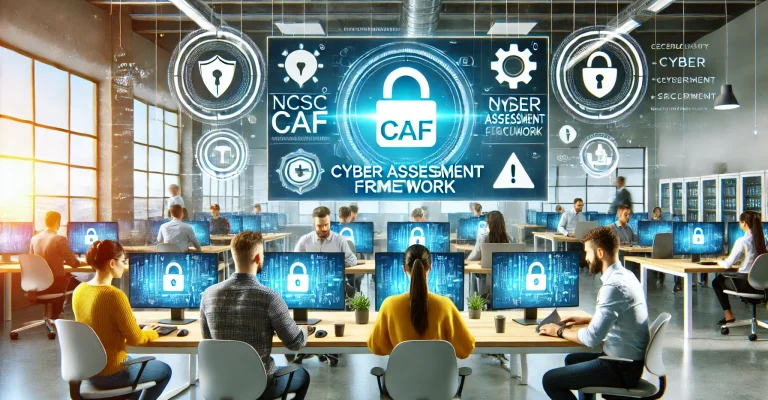Social Media Influencers: What Parents Need to Know
Social media influencers wield significant power over the online behaviour of children. While following these digital celebrities can offer benefits like helpful tips and inspiration, there are also potential dangers that parents and guardians need to be aware of. In this article, we’ll delve into the most significant risks posed by social media influencers to children.
Unrealistic Expectations
One major danger of social media influencers is their promotion of an idealised, picture-perfect life. This can create unrealistic expectations among children, leading them to believe that their lives should be equally perfect. As a result, children may experience feelings of inadequacy, anxiety, and depression. They might also feel pressured to present a curated and idealised version of their own lives, resulting in a lack of authenticity and an unrealistic view of themselves and the world around them.
Unhealthy Lifestyle Choices
Influencers can negatively affect children’s health by promoting unhealthy habits such as extreme dieting, smoking, or excessive alcohol consumption. When children see these behaviours portrayed as normal or desirable, they may be more likely to adopt them. This can lead to serious physical and mental health issues, including eating disorders, addiction, and other chronic conditions.
Cyberbullying
Social media can be a breeding ground for cyberbullying. Influencers who engage in or promote negative behaviour, such as body shaming or trolling, contribute to this problem. Children exposed to this behaviour may become desensitised to it or feel compelled to engage in it themselves, perpetuating a cycle of online harassment and negative social interactions.
Lack of Privacy
Social media influencers often share intimate details of their lives, making children believe that sharing everything online is normal. This lack of privacy can leave children vulnerable to online predators and other dangers, such as identity theft, cyberstalking, and various forms of online harassment. Children may also be more inclined to share personal information that could compromise their safety and well-being.
Online Addiction
Children who spend too much time on social media can become addicted, leading to issues such as poor academic performance, lack of sleep, and social isolation. Influencers often post frequently and use clickbait tactics to attract followers, making it easy for children to spend hours scrolling through feeds and neglecting other important aspects of their lives.
The Double-Edged Sword of Influence
Social media influencers, the new-age celebrities of the digital world, wield considerable influence over their audiences, which often include impressionable children and teenagers. Their impact on the younger generation can be profound, shaping not only their preferences and behaviours but also their worldviews and self-esteem. It’s a double-edged sword, as the influence can veer into both constructive and detrimental territories. While many influencers use their platforms to impart positive messages, share educational content, and inspire their followers toward beneficial lifestyle choices, the realm of social media is not without its perils.
Positive Influences
The positive impact of social media influencers can be significant. They often serve as role models, offering guidance, inspiration, and valuable life lessons. From promoting physical fitness and healthy eating habits to encouraging creativity and academic pursuits, influencers have the potential to play a constructive role in a child’s development. Moreover, they can foster a sense of community and belonging, which is particularly important during the formative years when individuals are navigating their identity and seeking their place in the world.
Negative Influences
However, the potential risks associated with social media influencers culture cannot be overlooked. The curated, and often unrealistic, portrayals of life that dominate social media platforms can contribute to issues of self-esteem and body image among young followers. The pressure to conform to certain standards of beauty, success, and lifestyle, perpetuated by influencer content, can lead to negative psychological outcomes, including anxiety, depression, and social isolation. Furthermore, the commercial aspect of influencer marketing introduces additional challenges, as children may be unduly influenced by product endorsements and consumerist messages without a critical understanding of advertising tactics.
Parental Guidance and Digital Literacy
Given these complexities, it’s imperative for parents and guardians to play an active role in their children’s social media engagement. Monitoring social media use is a crucial first step, but it’s equally important to foster open communication about the content they encounter online. Discussing the difference between online personas and real life, encouraging critical thinking about media consumption, and setting healthy boundaries around social media use are all key strategies to protect and empower children in the digital age.
To further mitigate the risks and enhance the benefits of social media, promoting digital literacy and resilience is essential. Children should be educated about the mechanics of social media, including the realities of influencer marketing, the importance of privacy settings, and the skills to distinguish between credible and dubious online content. Providing a supportive environment where children feel comfortable sharing their online experiences and concerns can also go a long way in ensuring their safety and well-being online.
Conclusion
Social media influencers have a powerful impact on children, shaping their behaviours, preferences, and self-perception. While influencers can offer positive role models and a sense of community, they also pose significant risks, from unrealistic expectations to unhealthy lifestyle choices. Parents and guardians must actively engage in their children’s social media usage, promoting digital literacy, open communication, and healthy boundaries to safeguard their well-being in the digital world.
Refferences
American Psychological Association:
- Article on the impact of social media on adolescents: This article from the APA explores the various psychological impacts of social media on young people, including issues related to self-esteem, body image, and social comparison.
- The Role of Social Media in Adolescent Development
Common Sense Media:
- Study on teens and social media: Common Sense Media provides comprehensive research and insights into how social media affects teenagers, covering topics such as mental health, privacy, and digital well-being.
National Institutes of Health (NIH):
- Research on social media addiction: This resource offers detailed information on the potential for social media addiction and its consequences on young people’s physical and mental health.
- Social Media Use and Mental Health Among Adolescents
Cyberbullying Research Center:
- Data on cyberbullying: The Cyberbullying Research Center provides statistics, research, and resources on the prevalence and effects of cyberbullying among youth.
The Journal of Adolescent Health:
- Study on social media’s impact on body image: This peer-reviewed journal article examines how social media use influences body image and self-esteem among adolescents.
Pew Research Center:
- Survey on teens, social media, and technology: Pew Research Center provides reliable data and analysis on how teens interact with social media and its effects on their daily lives.














